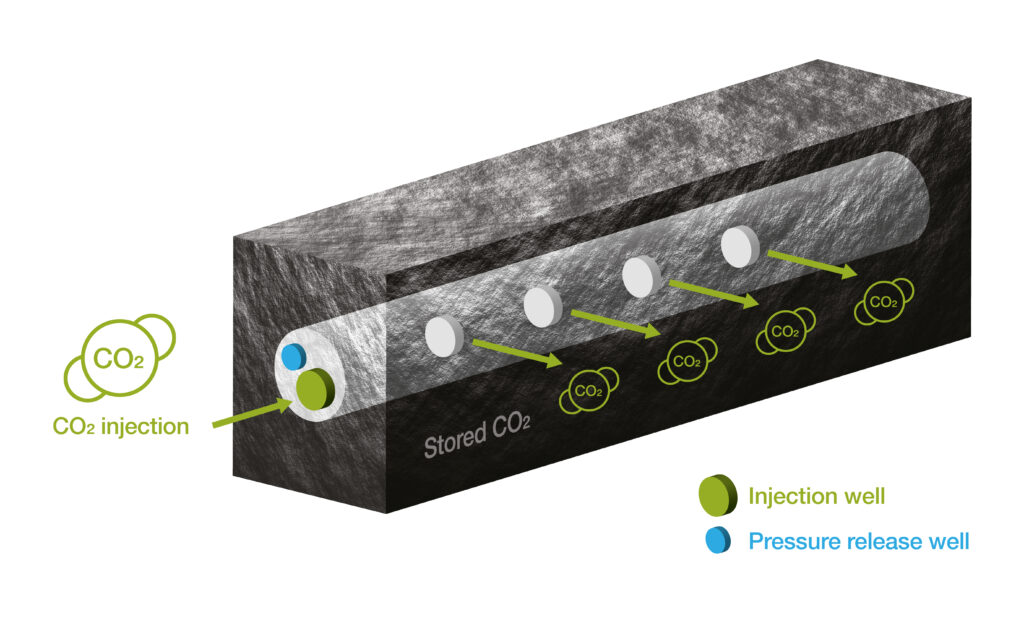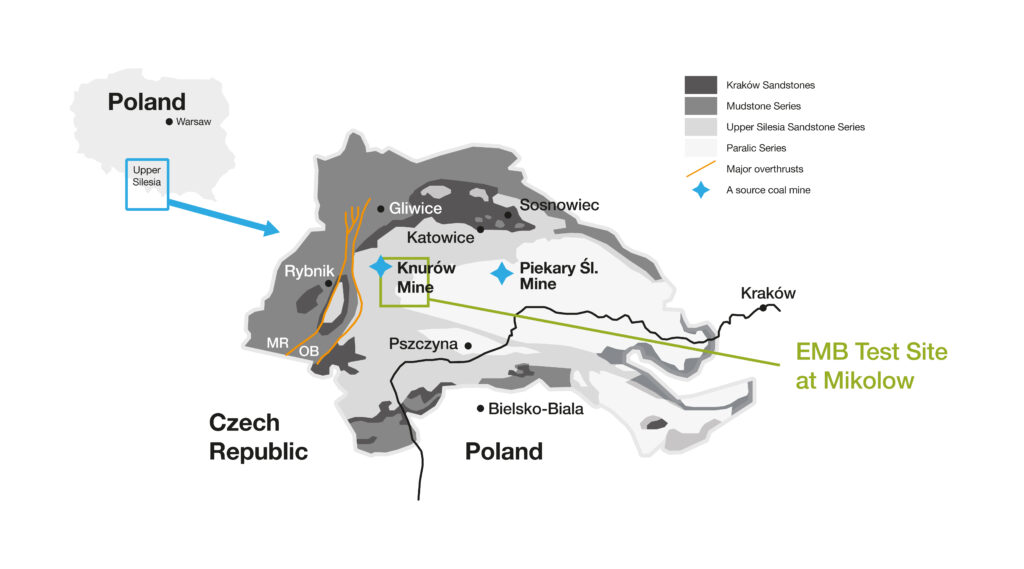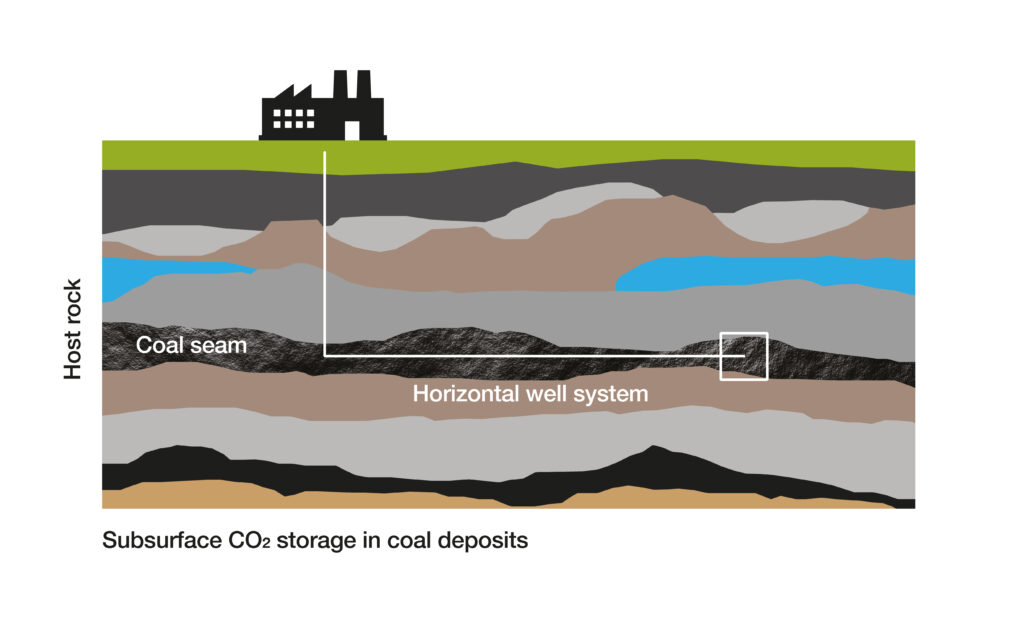FLEXIS secure €2M funding to expand its research into reducing the CO2 in our atmosphere
Following €2M funding from the European Union’s Research Fund for Coal and Steel (RFCS) programme, academics from the FLEXIS project are collaborating with the Central Mining Institute (GIG) and Polska Grupa Gornicza (PGG) in Poland and Helmholtz Zentrum Potsdam Deutschesgeoforschungszentrum (GFZ) in Germany, to establish an underground research observatory to unlock the potentials of using European coal reserves for carbon storage.
Geological carbon storage or sequestration, is a prominent technology in the strategies for climate change mitigation. In short, it is the process of injecting captured carbon dioxide (CO2), a major greenhouse gas, into subsurface formations (such as coal seams, saline aquifers or depleted oil reserves) and ensuring its safe and long-term storage.

Close up of coal seam sequestration
The ROCCS project (establishing a Research Observatory to unlock European Coal seams for Carbon dioxide Storage) is a three year project that will commence on September 1st 2020.
Engineers will expand the discoveries that the FLEXIS team made when conducting lab based testing and modelling work.
The expert team from FLEXIS and its European partners, will conduct in-situ tests at Experimental Mine Barbara (EMB), Mikołów, Poland.

Map illustrating the location of the EMB Test site in Mikołów, Poland
The aim is to overcome the limitations pertinent to CO2 injectivity to increase the amount of gas storage in a coal seam. This is often experienced in existing technologies. This project will explore this issue.
A state-of-the-art, a horizontal well system will be designed and installed in the EMB for optimising CO2 injection.

Illustration of the horizontal well system
For the duration of the project, a comprehensive environmental monitoring scheme will be provided in the EMB test site to ensure safe operation, risk assessment and management. Within the ROCCS project, a large-scale commercial site will also be selected and analysed for optimum CO2 storage in a cost-effective manner, supported by a detailed techno-economic analysis.
Project synthesis will determine whether the novel injection system is an effective (including cost effective) method to improve the rate of CO2 injection and storage, leading to new best practices for commercial application.
This project is an excellent opportunity to take our years of world leading research from the lab into a full-scale demonstration test site. Subsurface sequestration of carbon dioxide is a widely recognised technology to reduce atmospheric emissions of CO2. In that regard, we have a strong working partnership with Poland and as many European regions have significant rich coal deposits, partnerships such as this can play a pivotal role in achieving EU’s carbon emission reduction targets.
FLEXIS’ Lead Principal Investigator, Professor Hywel Thomas


